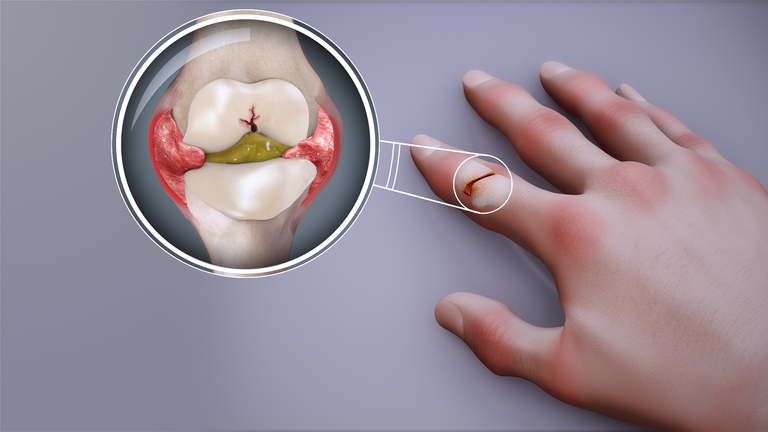In the medical sense, rheumatism is a word that is used to describe a group of diseases that affect joints. More specifically, the diseases are autoimmune and inflammatory. In other words, they are caused due to the body's immune system attacking the body cells, tissues, or organs.
The attack causes abnormal inflammation in the respective parts of the body. The results include swelling up, redness, stiffness, and the feeling of pain in the affected area.
Rheumatism is often used interchangeably with arthritis. However, medical experts prefer to use arthritis in the place of rheumatism.
I have heard so much about this disease from afar. Until recently, when my sister was diagnosed with one. Apparently, she has been feeling this chrn=onic pain in her back for a while. She has sought medical help on several occasions and different drugs have been prescribed.
Most of the drugs are non-steroidal anti-inflammatory drugs, as expected. The prescriptions are usually followed by words of advise for her to put an end to her profession. She operates a hair clinic which requires that she stands for a long period of time during working hours.

Each time she feels the pain, gets prescription drugs, and feels better, she returns to her usually grinding. A single mother of two has no other way to get her bills sorted in this part of the world.
The end results. The pain comes back stronger than ever.
Until she was asked to do an X-ray of the vertebral columns to know exactly what the problem is. That was when the diagnosis was revealed. She was explained to in a language that she understands.
Initially, she just told that there is a hole in her vertebral column.
Then, another Physician explained in detail.
The cartilaginous support between two vertebral bones is gradually wearing out. This means that the two bones will come in contact often and create a frictional force when they glide over one another. The gliding is what causes pain.
The disease is progressive, according to the experts. Meaning that it worsens with time. My sister is in her early 40s. She was frankly told that either she stops working a job that requires her standing for a long period of time or risks the disease getting worse.
Is there no solution?
The only way out is surgery. However, it is not as simple as it sounds. According to the doctors, surgery is 50/50. Meaning that while what is broken can be fixed, new problems can be created. She may not be able to walk after the surgery.
Perhaps with better technology, the result of surgical correction will not be 50/50. Since we cannot afford where better technology is and we cannot gamble with 50/50, we just need to find a way to keep managing the situation.
According to the doctors, even if we want to opt for surgery, her condition has not yet crossed the threshold for surgery. If she can change her lifestyle by not standing or sitting for too long, taking the necessary drugs, eating appropriate foods, etc., she may comfortably long without having to worry about the pain of arthritis.
Another thing, we were told that the abnormality is hereditary. Really?
No. The doctor could be wrong on this one. Some arthritis could be hereditary. Not that it is 100% certain that this particular one is hereditary.
I will be watching myself closely nevertheless. I do a lot of sitting due to the nature of what I do for crumbs. Not feeling any chronic back pain yet and don't pray to feel any. I am still some ways off before getting to my 40s though.
Thank you all for reading.
Resources
https://www.news-medical.net/health/What-is-the-Difference-Between-Arthritis-and-Rheumatism.aspx
https://www.hss.edu/condition-list_inflammatory-disorders.asp
https://www.webmd.com/rheumatoid-arthritis/an-overview-of-rheumatic-diseases
https://www.mayoclinic.org/diseases-conditions/arthritis/symptoms-causes/syc-20350772


